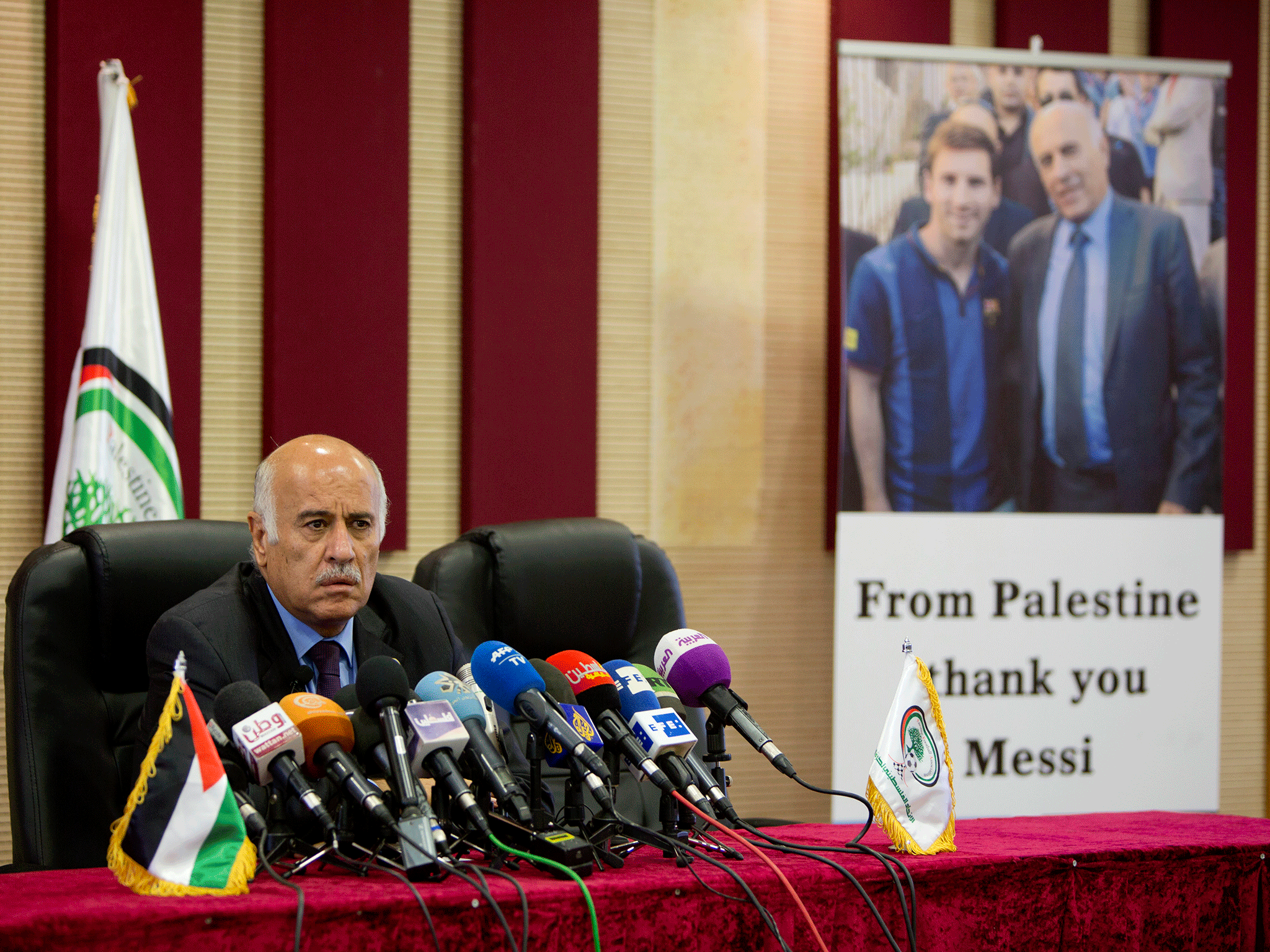Israel scores own goal as Argentina match cancelled in victory for Palestinians
Argentinian decision ‘means the world doesn’t surrender to state terrorism,’ Palestinians say

Prime Minister Benjamin Netanyahu’s government was smarting on Wednesday from a symbolically powerful setback after Argentina cancelled a friendly football match against Israel following pressure by Palestinians and their supporters.
The cancellation was painful, not only because it disappointed fans, but also because it marked one of the biggest successes yet for the Boycott, Divestment and Sanctions Movement that seeks to isolate Israel.
Palestinian groups welcomed the news of the cancellation, saying Israel, through the friendly, had been attempting to “sports-wash” abuses against Palestinians, including recent killings by snipers of unarmed Palestinians during protests at the Gaza border.
The sold-out match, scheduled to take place on Saturday evening at the Teddy Stadium in West Jerusalem, had been eagerly awaited by Israelis anxious for a glimpse of Lionel Messi in Argentina’s final warm-up before next week’s World Cup in Russia.
But fans were stunned when the Israeli embassy in Argentina announced the “suspension” of the game due, it said, to “threats and provocations” against Messi.
Israel’s opposition did not accept the explanation at face value. It said the government had triggered the Argentinian cancellation through its own actions.
“Turning the game into a political event caused its cancellation,” Zuheir Bahloul, a member of the Knesset from the Zionist Union party and a former football commentator, told The Independent.
In particular, the right-wing culture and sports minister, Miri Regev, had erred in moving the venue from the northern city of Haifa, which was Argentina’s preferred locale to Jerusalem, which Israel claims as its “eternal, undivided” capital but whose eastern part Palestinians envision as their own future capital.
The issue has become all the more charged since the US last month moved its embassy from Tel Aviv to Jerusalem, infuriating Palestinians.
Ms Regev also depicted the friendly as linked to the 70th anniversary celebrations of Israeli statehood.
“The moment the Argentinians saw that the game was taking on a political colouring they got cold feet,” Mr Bahloul said.
“The result is that the fans, including myself, lost out on the visit of the prophet of the religion of football, a very special prophet who, with his team, did not make it to the holy land.”
The Palestinian campaign was led by Jibril Rajoub, head of the Palestinian Football Association, who on Sunday called on Arab and Muslim fans to burn pictures and T-shirts of Messi if he attended the friendly.
The Israeli government blamed antisemitic elements for the fiasco.
Avigdor Lieberman, the hard-right defence minister, wrote on Twitter: “It is a shame that the football nobility from Argentina didn’t withstand the pressure of the inciters and haters of Israel whose only goal is to harm our basic right to self-defence and bring about the destruction of Israel. We will not surrender in the face of a group of antisemites and terror supporters.”
Ms Regev blamed Argentina’s decision on “terror groups that began sending messages to players and their families with clear threats to harm their lives and those of their children. Among other things, films and pictures of children’s bodies were sent to the players.”
This happened because of the inappropriate politicization by minister Miri Regev. We actually deserve this punishment for injecting politics too much into sports
Fans were divided over who to blame for the cancellation.
“This happened because of the inappropriate politicisation by minister Miri Regev. We actually deserve this punishment for injecting politics too much into sports,” said pensioner Shmuel Einhar, an Israeli Arsenal fan.
Matvey Barsukov, 42, a health worker, disagreed, saying: “Argentina should not have caved into the pressure of BDS. Sports, music and culture should bring nations together. Argentina made a mistake and it’s a shame.”
Palestinians were elated by Argentina’s move.
PLO Secretary General Saeb Erekat said Argentina, its people and team had upheld international law in the face of Israeli violations including killings of innocent Palestinians along the Gaza border.
The Argentinian decision “means the world doesn’t surrender to state terrorism, robbery and threats that are implemented by the Israeli government and backed by US President Donald Trump.
Tibet play in alternative 'World Cup' in London
Show all 14“The international community won’t surrender to the actions of the Israeli government and its crimes against the Palestinian people.”
Israel says its use of force against Palestinian demonstrators is necessary to prevent a penetration of its border that would endanger nearby communities.
Fadi Quran, Ramallah-based senior campaigner for the Avaaz online activist network, said: “Argentina’s decision has brought a spark of hope to millions of Palestinians who felt forgotten.
“From Palestine we say thank you Argentina for taking a moral stance and reminding the world that Palestinian lives matter.”
Mr Quran dismissed Israeli assertions that Argentina’s move came about because of threats to players, saying Avaaz had worked closely with BDS and encouraged 200,000 members in Argentina and Spain to send messages to the Argentinian Football Federation demanding withdrawal from the match.
“We got the message to them that they were being played by the Israeli government and they bravely took the right position.”
Subscribe to Independent Premium to bookmark this article
Want to bookmark your favourite articles and stories to read or reference later? Start your Independent Premium subscription today.

Join our commenting forum
Join thought-provoking conversations, follow other Independent readers and see their replies